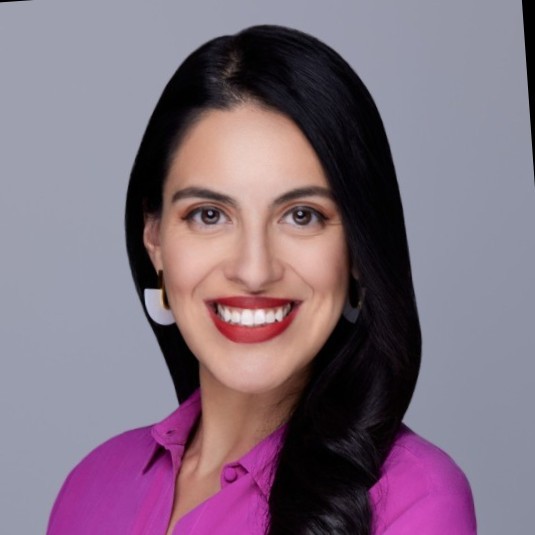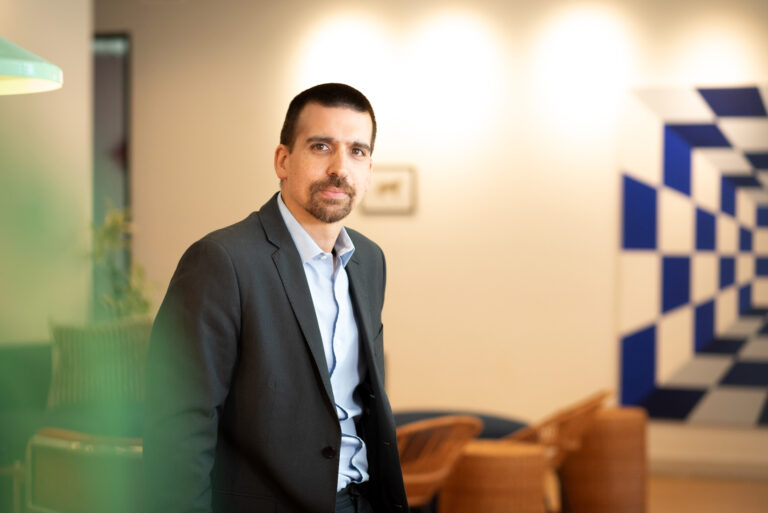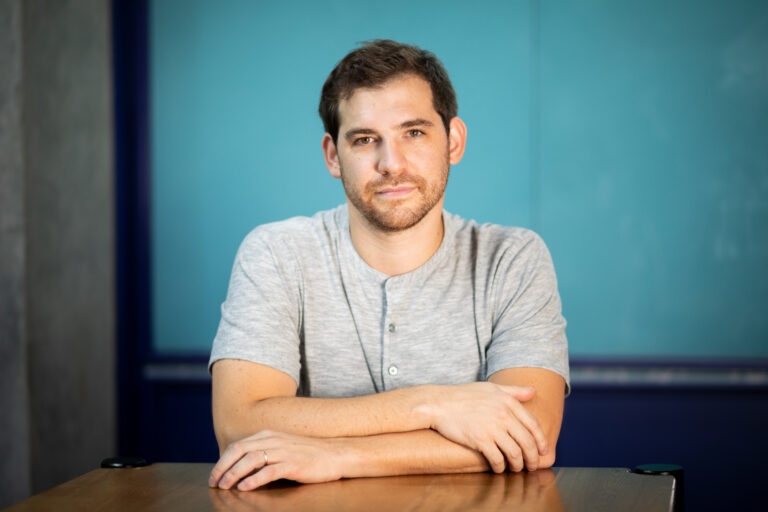Zyanya Bejarano: Making a Difference in EdTech Through Experience and Innovation
Meet Zyanya Bejarano, an accomplished professional hailing from Mexico, and one of the newest members of uPlanner’s Board of Directions. Zyanya shares her role and motivation to join the Board of an educational technology company, and how her experience and passion for higher education are influencing her approach. Zyanya also shares her interest in boosting the representation of women in management roles, especially in Latin America and the United States.
Bejarano defines herself as someone who is curious by nature and passionate about understanding the way in which human beings learn and develop. She is the mother of a 2-year-old child who is one of her greatest inspirations, and lives in Salt Lake City, (Utah), with her daughter and husband. Among her hobbies are cooking, reading and traveling.
How did the idea of joining uPlanner’s Board of Directors come about?
I have known Juan Pablo for several years, and we had talked about the possibility of working together, but I was with other projects. Since my departure from Instructure in January and since that moment, we have maintained a relationship that is a little more, let’s say, like that of an Advisor, of external advice, supporting each other with market knowledge. So, how did this idea of entering the board come about?
Juan Pablo was interested in bringing more female representation within the leadership team, and obviously, my background in the commercial area and my understanding of higher education not only in Latin America but in the United States, is something of interest to him. And, specifically for me, I think the motivation is the representation of more women on boards of directors, not only in Latin America but in the United States. What prompted me to more proactively look for board positions was a statistic that I saw exposing the representation rate of women in Latin America, one which is very similar to that of the Middle East, of approximately less than 10%.
When you make that comparison and understand that in Latin America there is the same representation of women as in the Middle East, you are shocked, because you do not put Latin America in an equation with a region that has countries where women’s rights are being attacked every day. So, that’s what made me say, wow I have to do something. And so, I began to look for spaces where I could contribute this knowledge of the go-to-market of an expanding commercial area. And with Juan Pablo, we already had this synergy before, so little by little, the opportunity to be part of the board developed.
What do you expect from the uPlanner team and how do you plan to work together with the other board members to manage those expectations?
At the end of the day, impact is impact as long as it is measurable. When we are looking for an initiative, or in general a change in the way of being certain that there is progress, you have to: number one, know where you’re at currently, and number 2, have metrics that help you measure that progress.
What I hope is to be able to have that tangible impact through strategic areas within the business. The easiest thing would be to say “SALES!” because normally any business is based on revenue, that is, how much you bring monetarily. However, there are other components that are also measurable and which help us achieve impact. For example, profitability is preferable, that is to say, more revenue does not necessarily mean that it is a better business. Maybe you have to focus more on earning money, despite whether you’re bringing in a lot of income. So, what to do? For one, optimization of the operation in a healthy way, and the other, is the human factor, and this is essential.
That’s why it’s important for me to continue this theme of inclusivity and diversity of ideas, diversity in many ways; not only of gender but also cultural, and experiential. For this reason and returning to the topic of the board of directors, what I bring is the knowledge of commercial operations at a technology company, which I think was lacking in the board of directors. And I think that’s very valuable, especially today when investors are looking for a return on investment.
How do you see the role of uPlanner within the Tech world? What challenges and opportunities do you see so far?
Everything that has to do with analytics is always very interesting. As well as everything that has to do with the possibility of managing prediction and helping academic leaders and institution owners make decisions. Data exists everywhere, but the fact that it is packaged in a consumable and actionable form makes it truly valuable to academic institutions. So I think this is the value that uPlanner is bringing: the focus on actionable information for decision-makers at academic institutions, one that ultimately helps students.
Finding how to optimize classrooms to open up more opportunities to more students, for example. Or if a student is at risk of dropping out, what can be done proactively? This same problem exists in the United States, for example. There is a significant dropout problem that higher education has not faced before. Today, the value of higher education is being questioned. Many students say: “Why am I going to spend time and money?” or “Why would I do 4 or 5 years of a degree when I can have certifications or micro-credential and get a job that may not be full-time but can start making money for me?”.
So academic institutions are looking at how they can intervene before the student drops out, or look for areas of optimization within the same academic institution. Therefore, I think the expansion of uPlanner in the United States is one of the big initiatives, and I hope to be able to bring more context through my knowledge, living in the U.S., and having knowledge of the American higher education market. I also want to help see how products that have been extremely successful in private higher education institutions in Latin America can be localized to the reality of the United States. I want to find a format that helps them solve their challenges, which again are not very different, but they do have to be localized.
What are the current challenges in Higher Education in the U.S.?
One of the great challenges for any educational technology company that wants to operate in the United States is the dropout rate and the lack of students who want to enter higher education. The peak of higher education enrollment happened around 2014, and since then, the number of students entering higher education institutions in the United States has gone down. At this point, the relevance of higher education in this region began to be rethought.
Additionally, the U.S. population is aging, and this is a factor you cannot control. It is what it is. So now, more than ever, higher education leaders are looking for ways to show value to those who do enroll, not only with retention initiatives but also regarding how to reduce the cost of education to get more students to enroll.
Recently, I listened to an interview with a university president who said, “I am looking for ways to maintain quality and accessible education, but that is expensive, that is, I need to continue supporting my instructors whom I have to pay well, because they are quality instructors, as well as the staff who work in other departments and who make the operation work. Everything is an investment, and all of this can be paid for largely through registrations. So I look for ways to make it accessible, but it is very difficult.” uPlanner is in a position to help institutions find a way to help save or seek to optimize its operations, and I think that this will be of great interest to these institutional leaders in the United States.
What are the main differences in the roles of decision-makers in NA and in LATAM?
Mainly, the purchasing process is different. In the United States, they normally have to form a committee in which an evaluation process is carried out. Multiple people are involved in the process. On the contrary, in Latin America, it is more common that if you are in contact with the principal or the owners of the university, somehow things move easier. In the United States, it is much more methodical. Why? Because the majority of higher education institutions are public and have funds provided by the government. That’s why everything occurs through RFPs, and it usually takes a little longer. Now, there are other reasons why decisions are slow to be made in Latin America, but here you can be sure that things are moving forward.
Is there anything about Zyanya Bejarano on a personal level that you want to share with us?
I am in a stage of my life of much learning. I have a baby who will turn two years old in September, and I have immersed myself in understanding human development since I had my baby. It has been very interesting to see the transformation of her learning processes. I love seeing how you lay the foundation for her to climb, and everything follows its natural process, which is also exponential since the neurological connections of a baby are much more than those of an adult. So, taking into account my background in the educational field, I am really enjoying this stage of seeing how my daughter learns daily.

I live in Salt Lake City, but I was born in Mexico City, and since 2013 – since I came to Instructure – I have been between Mexico and the United States for several years. I even lived in Peru for a while. So I really consider myself a bicultural person, beyond being bilingual. For generations, I have had in my family a close relationship between the United States and Mexico, and I opened it up even more with the work that I do from here for Latin America.
I am happy now to have this opportunity with uPlanner to leverage my experience and knowledge in Education to continue on this path. I live with my husband and my 23-month-old daughter. I like to cook and I love to read. I am curious by nature, and I read 4 or 5 books at a time, I am always either with an audiobook or a print book, learning something. I also have a wide variety of interests, from Einstein’s biography and neuropsychology, to how to create the most authentic paella recipe. Constant curiosity is something that defines me, and I value technology for its democratization of knowledge. Technology opens the doors to things we could never have imagined.
Zyanya Bejarano has given us a glimpse into her world, a world where determination meets opportunity, and passion is transformed into action. Her vision of equality, empowerment, and progress, continues to guide her on her path to redefining the standards of leadership and decision-making. In a constantly evolving world, her voice resonates as a powerful reminder that cultural and gender differences can be drivers of change and that education, collective understanding, and collaboration are the cornerstones of a brighter future.







